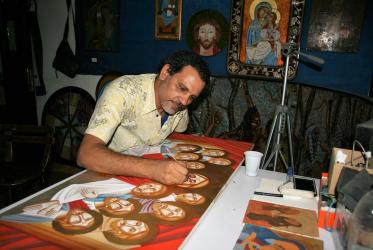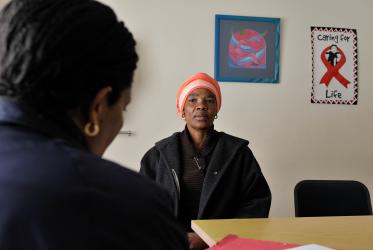Displaying 1 - 9 of 9
19 September 2022
Uppsala 1968: c’était le temps des changements
19 September 2022
Uppsala 1968: The times, they were a’changing
06 September 2022
WCC mourns passing of Calle Almedal
11 June 2018
Local work by faith-based groups key to ending AIDS
27 June 2016
Land rights focus of panel discussion
17 November 2015
Los derechos sobre la tierra tema de una mesa redonda
17 November 2015
Réunions-débats consacrées aux droits fonciers
17 November 2015




